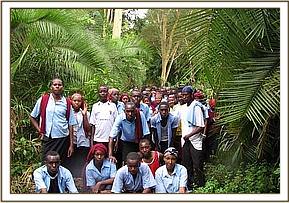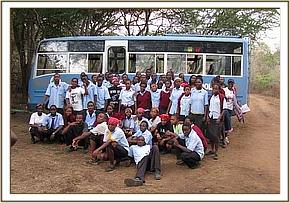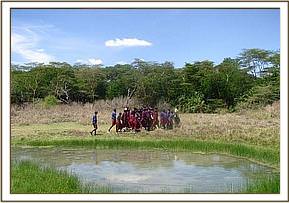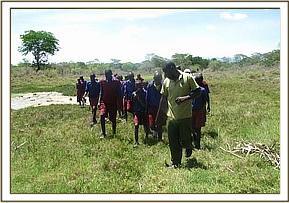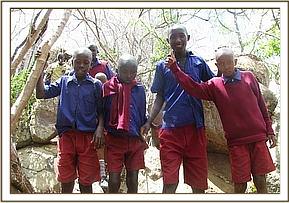Duma Team Chyulu Update: 01 November 2009
Participants. James Mbuthia.-Team leader Julius Kyalo. Daniel Lekoiten John Wahome Samuel Adero Peter Wambua. David Wambua.
Introduction.
The Conservation of the Kibwezi forest and its water source is of utmost importance as water resources continue to decrease in Kenya.The degradation of forests has far reaching ecological implications. High human population densities has largely contributed to destruction of forest areas most of which have been converted into farmland.These practices do not allow for the regeneration of forests thus leading to further shrinkage. Conversion of the would-be buffer areas for the forests to agricultural land and other illegal human activities do not allow for the recolonization of degraded forest ecosystems. It has been proven that exclusive management of forest areas by the Government has not worked so far and hence the only way forward to conserve forests in Kenya is to introduce private and community management plans that will ensure the long term sustainability of the currently dwindling Forests in Kenya.
Areas covered. During the month of November to Chyulu Team patrolled the Kibwezi forest.
Findings.
31 Snares.
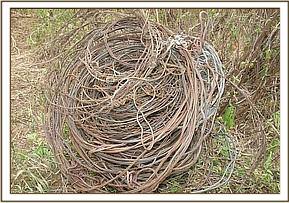
The arrival of the rains during the month of November has been long overdue. The wet conditions made the patrols a little difficult for the team, however patrols carried on. Kibwezi forest is an important habitat for bird species as well as other wildlife such as elephants ,buffaloes and bush bucks. With de-forestation being a major problem in Kenya this Forest is one of the last remaining habitats of its kind in the Tsavo region and is hence a hugely important area to protect. The patrol of Kibwezi forest was aimed at maintaining pressure on the illegal activity hot spots and assisting the Umani Team which operate in the Chyulu Hills area. The team patrolled around Kenze, Ndeini areas and found several charcoal kilns. The team also managed to lift 31 snares targeting medium game. The illegal activities in the forest have been reduced by persistent patrol of the teams. The opening of the access roads to the notoriously active spots for accessibility has yielded good results as many poachers, loggers, and Charcoal burners have stirred clear of this protected area.
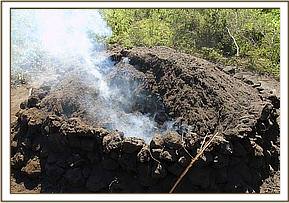
Current situation.
The coming of the rains has bought hope to the people and wildlife. The vegetation is now sprouting and the areas are changing from dry shrubs to green blanket. Wildlife & Livestock which have suffered terribly during the drought are beginning to gain condition again. Sadly it will take Wildlife many years to recover from the loss during the drought and back to its previous numbers. The Team hopes people will return to attend to their farms and reduce illegal activities in the Forest.
Management plan.
The development of Kibwezi forest management plan is in progress and the experts visited Umani forest on the 25th and 26th of this month. The man in charge of producing the Management Plan for the Trust was shown around by the Team Leader and given the important information he required for his work.
Community Outreach
School trips.
This month two schools benefited with a school trips to Tsavo West National Park.The trips were meant to benefit the most active members of the Wildlife Club. During the trip the students visited Shetani Lava, Mzima Springs and Chaimu Hills.
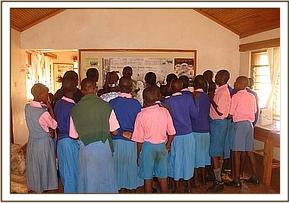
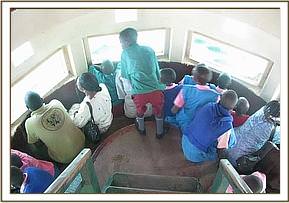

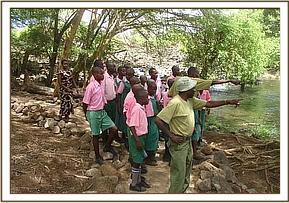

Umani springs visit.
As part of the Outreach Project, Muusini primary school and PCEA Kibwezi Polytecnic pupils visited Umani springs.
